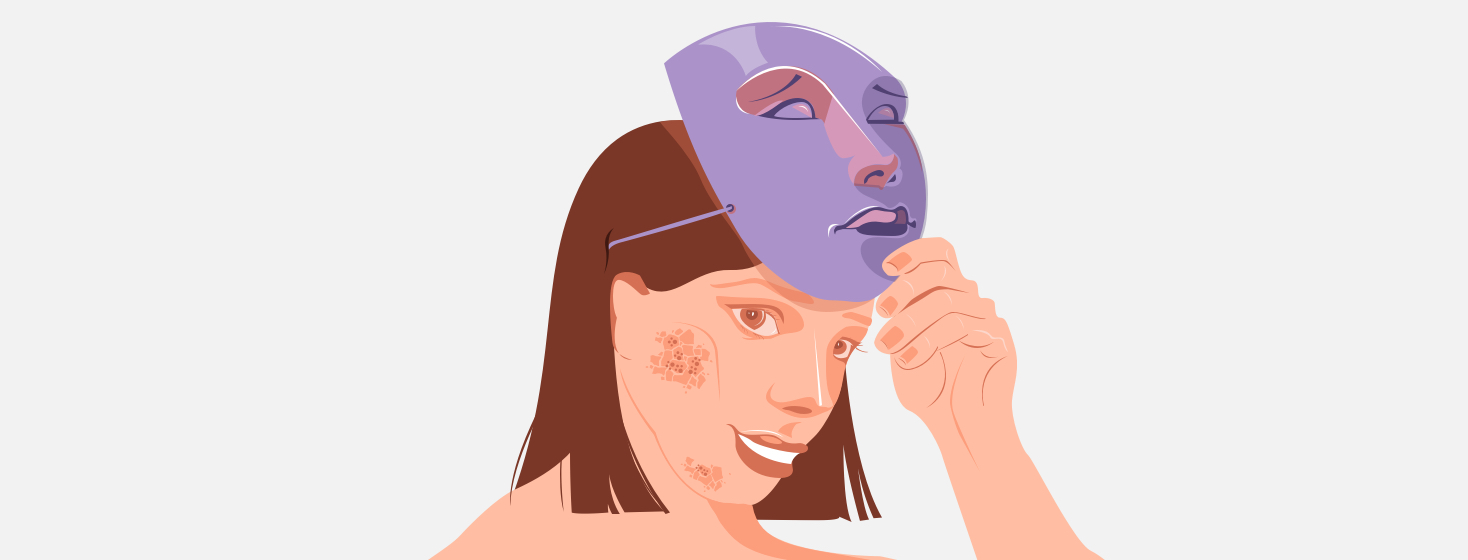The Power of Telling Others
When I was 16 years old, I began to focus on what my future would hold as I was getting close to high school graduation:
- What college would I get into?
- What job will I get?
- Where will I live?
- Who will I date or marry?
Many of these questions gave me lots of anxiety and worry, but I often wondered a lot about the last question.
Feeling held back
Then in high school, I became very ashamed of my eczema and I began to worry about the limitations that this disease would cause me, from the type of job that I could get, to the type of person that would find me attractive with this very visible condition. Because it was such a visible disease, showing itself on my forearms and neck, I felt like most people would be scared of my condition and that I could not date because of it.
Covering up eczema
For a long time, I did everything to cover up my arms. I tried to hide it the best I could, but it became very taxing on my time and mental health. I felt like I couldn’t fully be myself around others and kind of felt like I was lying to my friends that I was close with. These feelings began to consume me and have very negative effects on the way I viewed myself and my worth.
Opening up about eczema
I began to make changes to make myself feel happier with who I was despite having this embarrassing condition. I began telling friends about what I was going through and why I felt ashamed of having eczema and the love and support I received was overwhelming. I had no idea all it took was opening up. I also felt like I grew closer to these people and felt like I truly had a support system.
Knowing my worth
Soon, I felt empowered and kind of like I was a brand new person with so much to offer. I felt like for the first time, I knew my worth and saw myself differently. I no longer felt like I was a diseased individual that needed to hide behind long sleeves, long pants, and turtlenecks. I felt like I was this valuable and beautiful individual that no only was seen by others and loved deeply by them, but also valuable to society in my academics and future work life.
Finding confidence
Soon, I began talking to people I liked and felt like I no longer had to cover up who I was. I felt like I was good enough to date and good enough to be seen as beautiful and important despite my external condition. I felt confident about my external appearance and confident enough to open myself up to a boy, something I certainly would have never done before.
Free from the shackles of eczema
Although this isn’t about dating, I found more worth in myself and who I was. I realized that I was good enough to date and be seen by others and that has paid me dividends every day. My future also seemed to become clearer. I no longer viewed my future in the realm of eczema, but rather the realm of my limitations which essentially were nonexistent. I felt like for the first time, I could do anything I wanted to do with my future and that although eczema will be a part of it, it won't be the defining feature of every decision I make. That was certainly the most empowering.
I am not my eczema
Always remember that atopic dermatitis is a condition you have, but it isn't all you are. As people, we have so many unique and intricate things that make us incredible, from our beauty to our intelligence to our personalities and so much more. I may have eczema that may challenge me at times, but I am also smart, beautiful, kind, loving, generous, and so much more. Don't ever give it more power than it should have.
What have you done to break out of the feeling that atopic dermatitis defines you? Do you share your diagnosis and struggles with others?

Join the conversation